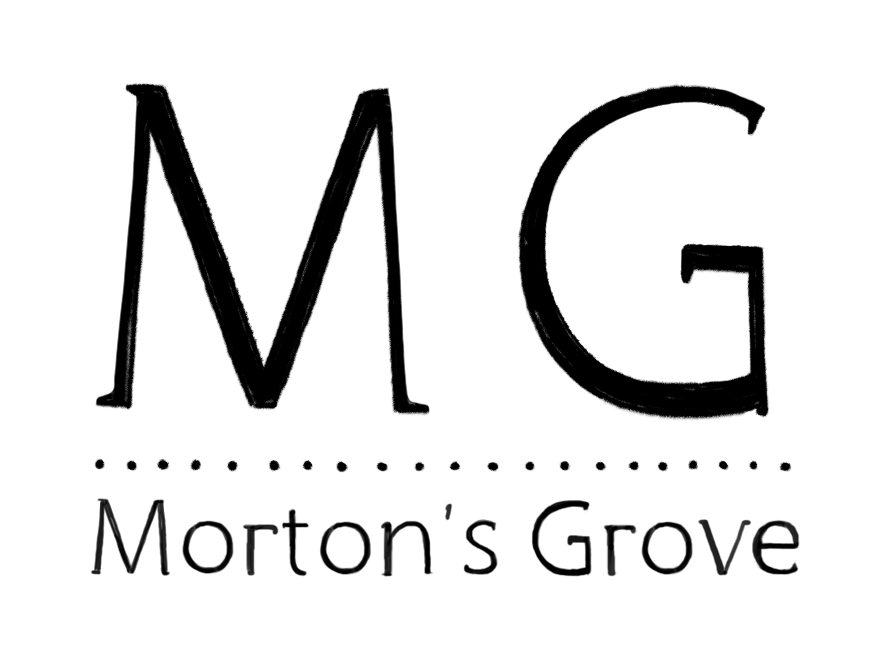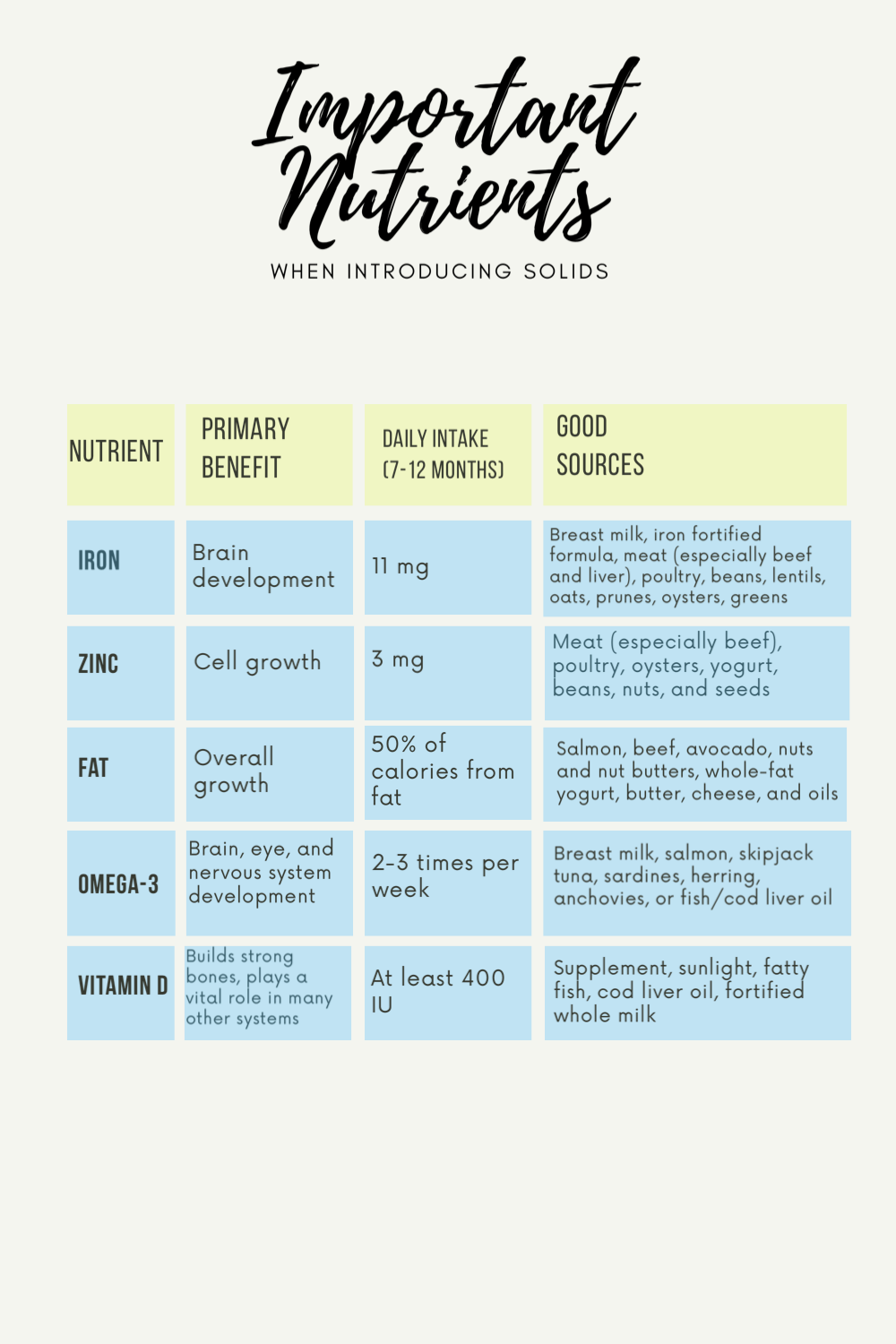Important nutrients for BLW babes
If you’ve been following along for a while, you know that I am very much a fan of getting all of the nutrients we need from food whenever possible (hence my love of whole food probiotic supplement: kefir!). I rarely harp on single nutrients, but look at foods as a whole. My motto is eating a balance of whole foods will almost always get you where you need to go.
That motto is definitely still true, but there are a few nutrients that are important around the time of introducing solids. The table below has daily needs of important nutrients for babes from 6-12 months, and then 1-3 years. These nutrients are important for all babes, whether or not they are BLW babes!
Iron
Arguably one of the most important nutrients for babies to get from food around the age of 6 months, iron has many roles in the body. It is a crucial part of brain development throughout infancy, and needs are high between 6-12 months. Check out this post for way more information on iron.
Adapted from my book, the BLW Baby Food Cook Book - Laura Morton, MS, RD, LDN
Vitamin D
There are a few nutrients that may need to be supplemented, Vitamin D being one of them. This “vitamin” (actually a hormone) is very commonly deficient and can be difficult to get from food. The AAP recommends supplementing Vitamin D (at least 400 IU) from birth for all breast fed babies and increasing to 600 IU after age 1. My family makes a point to be outside in the sun often, especially in warmer months, to help boost vitamin D levels as well. A blood test can be done to check levels and better determine dosing.
A snack of black beans smashed on toast, cucumber, and thawed frozen strawberries.
Omega-3 Fatty Acid DHA
The other nutrient I sometimes recommend supplementing is DHA, a type of omega-3 fatty acid, through fish oil or cod liver oil. This one you can get from food by eating fish 2-3 times per week. My family doesn’t eat fish that often so we supplement a good quality cod liver oil a few times per week. Cod liver oil is also a great source of vitamin D and could cover both bases in one supplement.
Probiotics are something I recommend families include for their kiddos as well, and my favorite way to get enough is with kefir, yogurt, and fermented veggies. A supplement can be beneficial following a course of antibiotics, but you will not find a better quality supplement for the cost than homemade kefir. Check out this post for more on kefir. It costs about $10 to get started and then just the cost of milk after that!
Although I am a Registered and Licensed Dietitian, this information is general in nature and is is not intended to be used as medical advice. Consult your child’s pediatrician when making any dietary changes and for any questions relating to your child’s diet.










